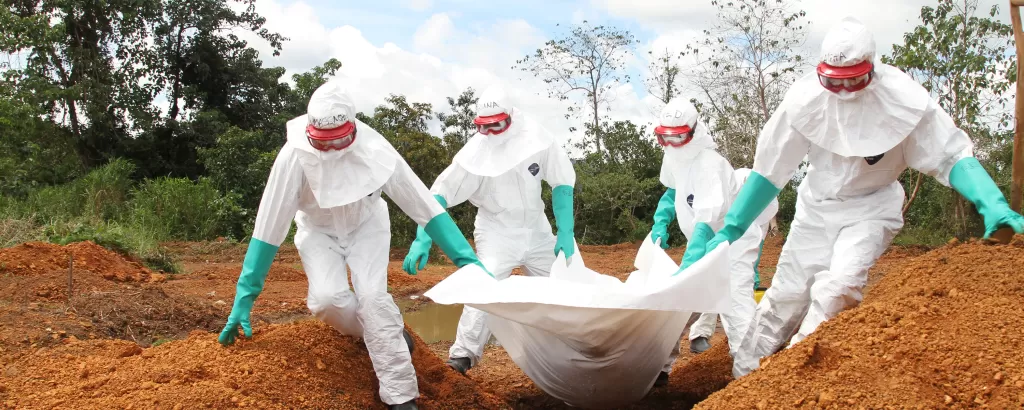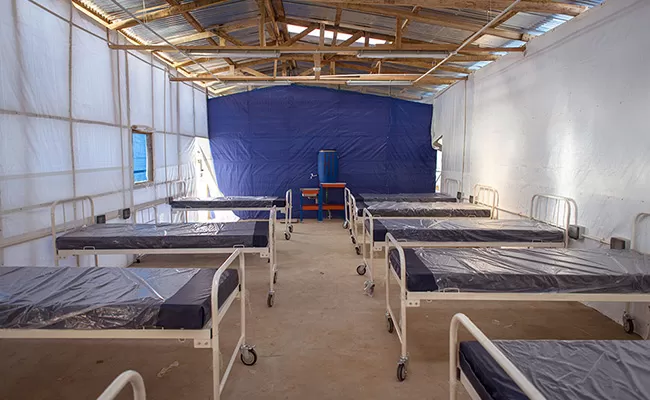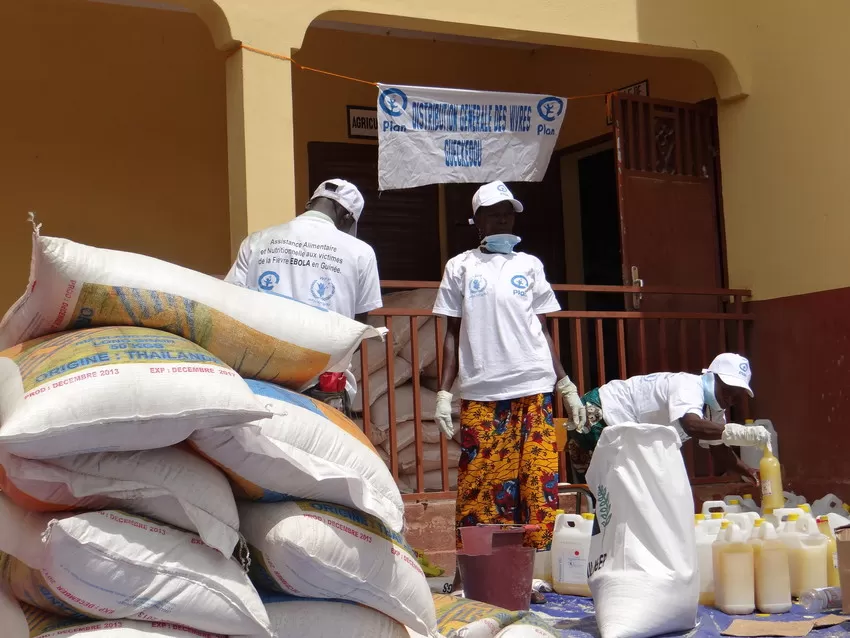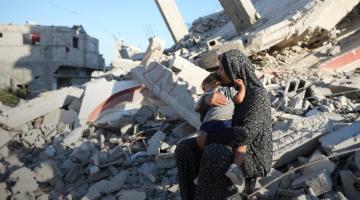Reports
Read more about how funds were spent and how the response to this crisis was evaluated


A Red Cross Ebola burial team at work in Sierra Leone. Image: Katherine Mueller/IFRC

raised, including £5 million matched by the UK Government

people were reached with health information to help prevent the spread of the virus

people were trained to pass on health messages

people were given cash grants to restore their livelihoods

A Save the Children treatment centre at Kerry Town near Freetown, Sierra Leone. Image: Louis Leeson/Save the Children

Plan International staff prepare food packages at a distribution centre in Guinea. Image: Plan UK
Protective equipment including gloves stored in a warehouse for use by front line workers
The decision to launch our first appeal in response to a disease outbreak reflected the severity of the ebola crisis in Western Africa.
DEC CEO Saleh Saeed said: “While many chronic diseases cause untold suffering in poorer countries, the worst acute outbreaks of deadly diseases such as measles or cholera have usually occurred in the wake of another type of disaster. In West Africa today we are seeing a disease create not just a medical crisis but a humanitarian emergency. Without urgent action to stop the spread of Ebola and to help those affected by the crisis, parts of West Africa face catastrophe within 60 days.”
Thanks to the generosity of the public, our appeal was a huge success and every donation contributed to saving lives.
Read more about how funds were spent and how the response to this crisis was evaluated

